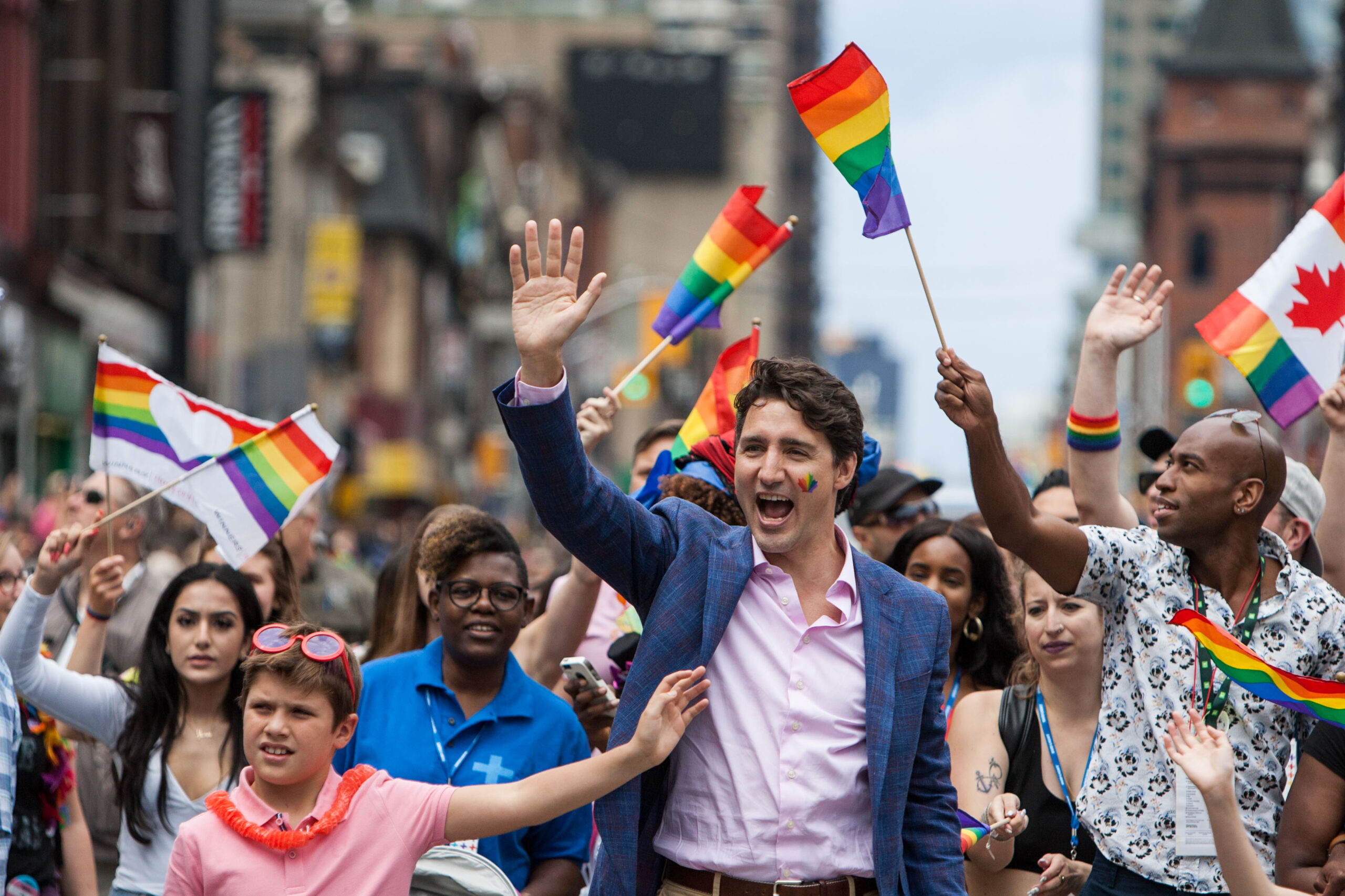With the spring legislative session drawn to a close, federal politicians of all stripes are making their plans to press the flesh with constituents at summer barbecues, festivals and Pride parades from coast-to-coast. Prime Minister Justin Trudeau himself has made a point of marching in some of the largest Pride parades in Canada over his three years in office.
But Pride isn’t and shouldn’t be just an opportunity for politicians to get face time. If a politician is marching in our parade, it ought to be because they’re standing and delivering for us. So what has Trudeau done to make us proud of him? And more important, to borrow a line from Janet Jackson — what has he done for us lately?
Trudeau was a breath of fresh air after the Harper decade, in which the federal government was often dismissive of the LGBT community and its concerns. Trudeau very quickly changed the tone of the government, and his presence in Pride parades was part of directing the national conversation on LGBT rights in our favour — in 2016.
The Trudeau government’s passage of the trans-rights bill and quick attempts to address trans issues on federal ID documents and in prisons was a big victory for the trans community —in 2017.
This past year, Trudeau’s government issued a long-demanded apology for past persecution of LGBT people in law and settled a multi-million dollar class-action lawsuit from former public servants and armed forces members who were unjustly dismissed from their jobs. The government also passed the deeply-flawed Expungement of Historically Unjust Convictions Act, which received royal assent June 21.
Queer historian Tom Hooper pointed out that the expungement act only covers a very narrow set of convictions that constitute a minority of actual historical charges and convictions against queers in Canada. Left off the list of crimes queer convicts can get an expungement for are being found in or operating a bawdy house, indecent acts, public nudity, immoral theatrical performance, obscenity and vagrancy.
Similar objections have to be leveled against the government’s proposed Criminal Code reform Bill C-75, which finally — after two aborted attempts — follows through on the government’s plan to finally strike out Canada’s anal sex laws, which impose a differential age of consent on gay men and place restrictions on multiple-partner sex.
Here too, the government seems to have missed that the LGBT community wants more. It’s not enough to just strike these clearly discriminatory laws — we want the government to be proactive and strike the other above-listed laws that are disproportionately applied against the LGBT community.
Bill C-75 was still in the Commons’ Justice and Human Rights Committee when Parliament adjourned for the summer. There is some faint hope that the Liberal-dominated committee could strike these laws when Parliament reconvenes in September. But it is not endearing that the government didn’t listen to the community’s concerns about these laws during consultations around the expungement act before C-75 was introduced.
Also absent from the bill is any action to carry out the government’s promise last year to address the high number of prosecutions for HIV non-disclosure.
I’ve criticized Trudeau before for his habit of making big flashy announcements with little follow through, and three years into his mandate we’re still waiting on a number of other promises he and his government have made to the LGBT community.
Most obvious is the promise to end the ban on blood donations from men who have sex with men, which was front and centre in their campaign literature in 2015 and earlier. Health Canada deferred action on the ban until the completion of several Canadian Blood Services studies in late 2019, so further action will have to wait until after the next election.
Proposed new regulations on the Assisted Human Reproduction Act, which would have made it easier for LGBT families to conceive children, was announced in 2016 but have also been deferred to the end of this year or early next year. Alas, it appears the new regulations will also maintain the ban on sperm donation from men who have sex with men.
While the Liberal government has taken steps to make it easier for trans folks to update their passports, it has also maintained a Harper-era regulation that bans trans people from boarding an airplane if their perceived gender does not match the gender on their official documents.
We also need to stand with our brothers and sisters who are sex workers who continue to face oppression and danger under the Criminal Code. The justice minister and the PM’s LGBTQ2 advisor MP Randy Boissonnault have pledged that the Harper-era sex work provisions are under review, but if you believe that government is going to decriminalize sex work in an election year, then I’d like to owe you money.
So if you see a federal Liberal politician at a Pride parade this summer — Trudeau has already announced he’s skipping Toronto Pride to be in Montreal for St-Jean Baptiste Day — be sure to let them know we haven’t forgotten what they’ve promised us, and that we’re holding them to account to ensure our equality.


 Why you can trust Xtra
Why you can trust Xtra


